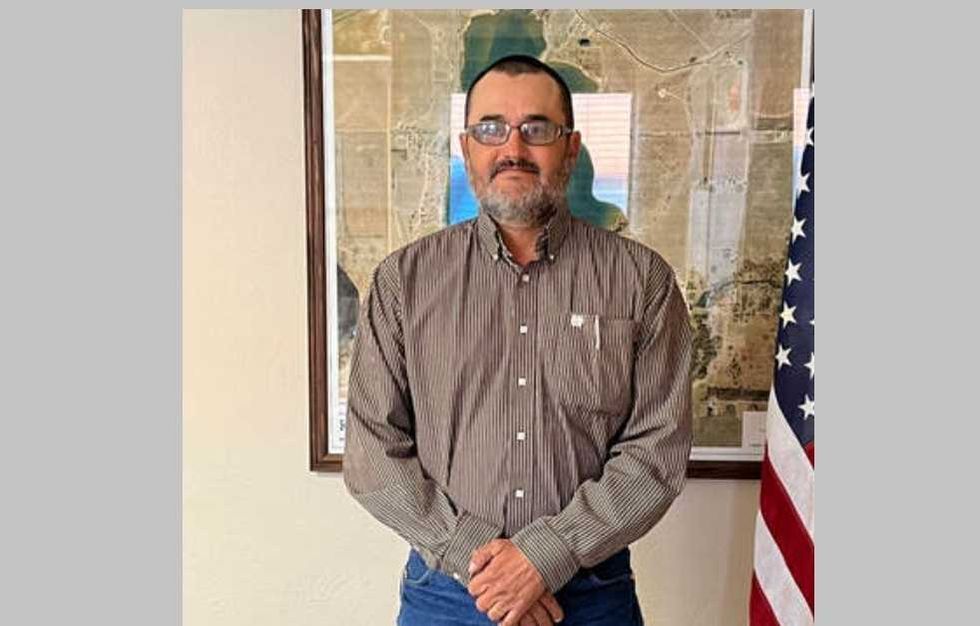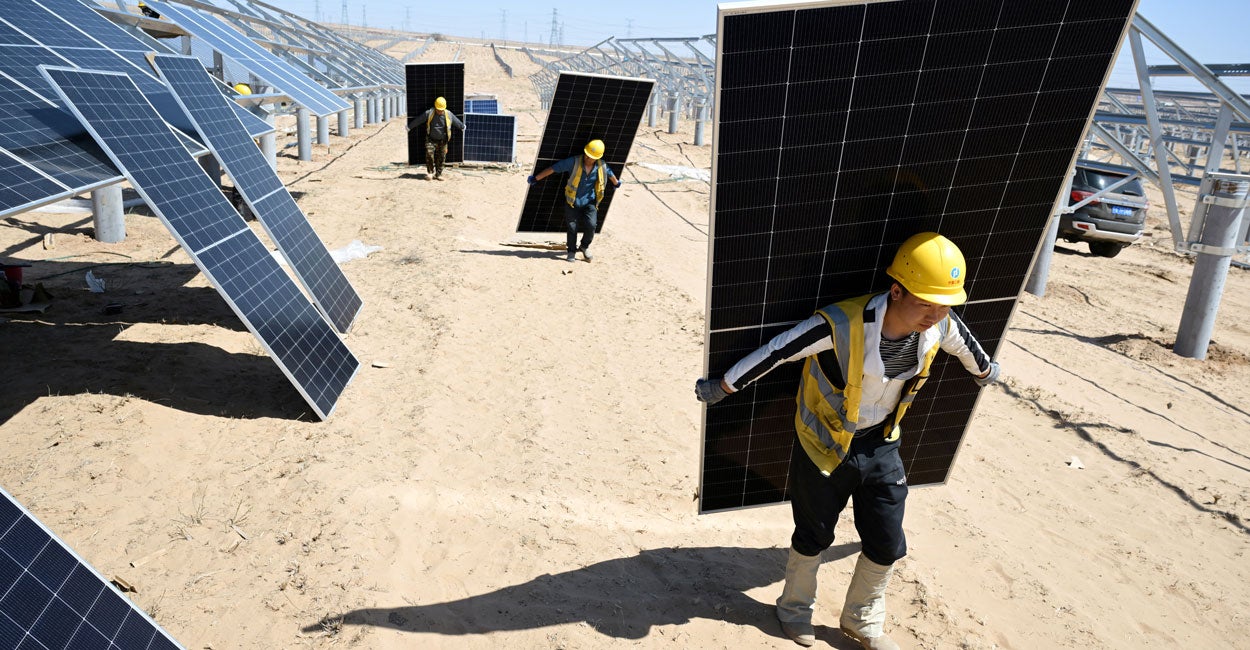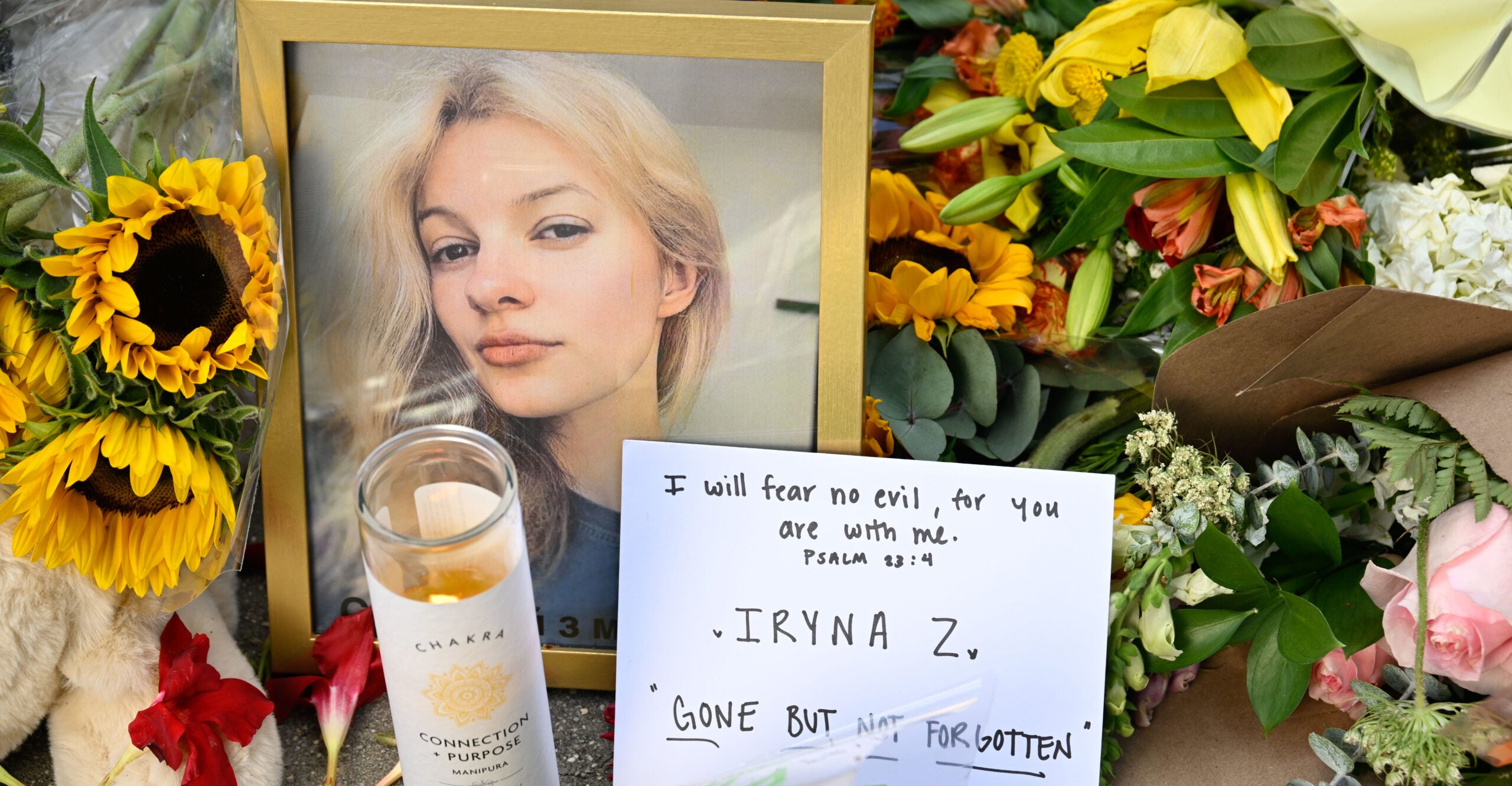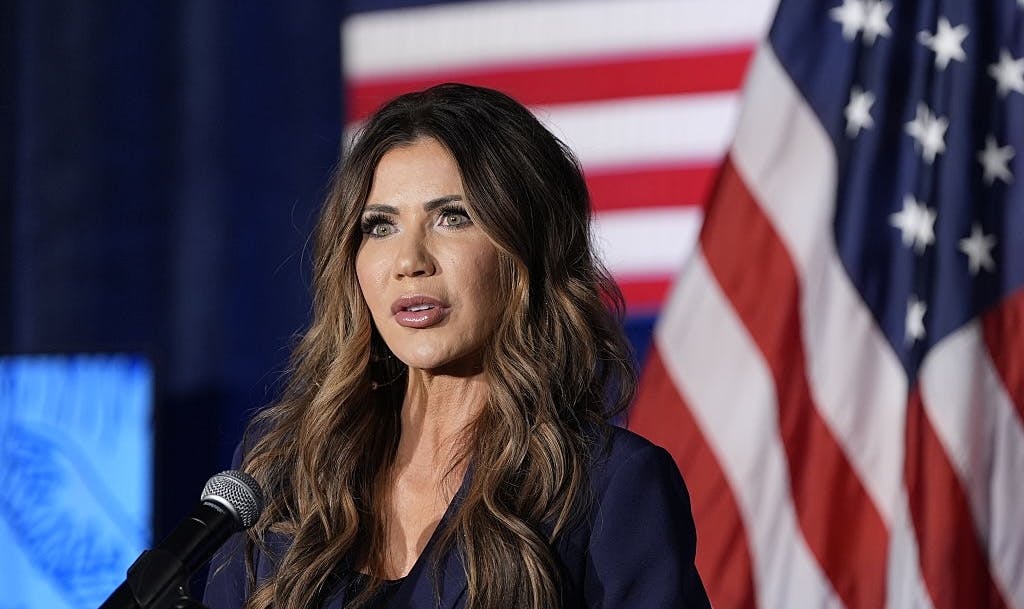Israeli-US Strikes on Iran Create ‘New Middle East,’ Former Defense Intelligence Officer Says
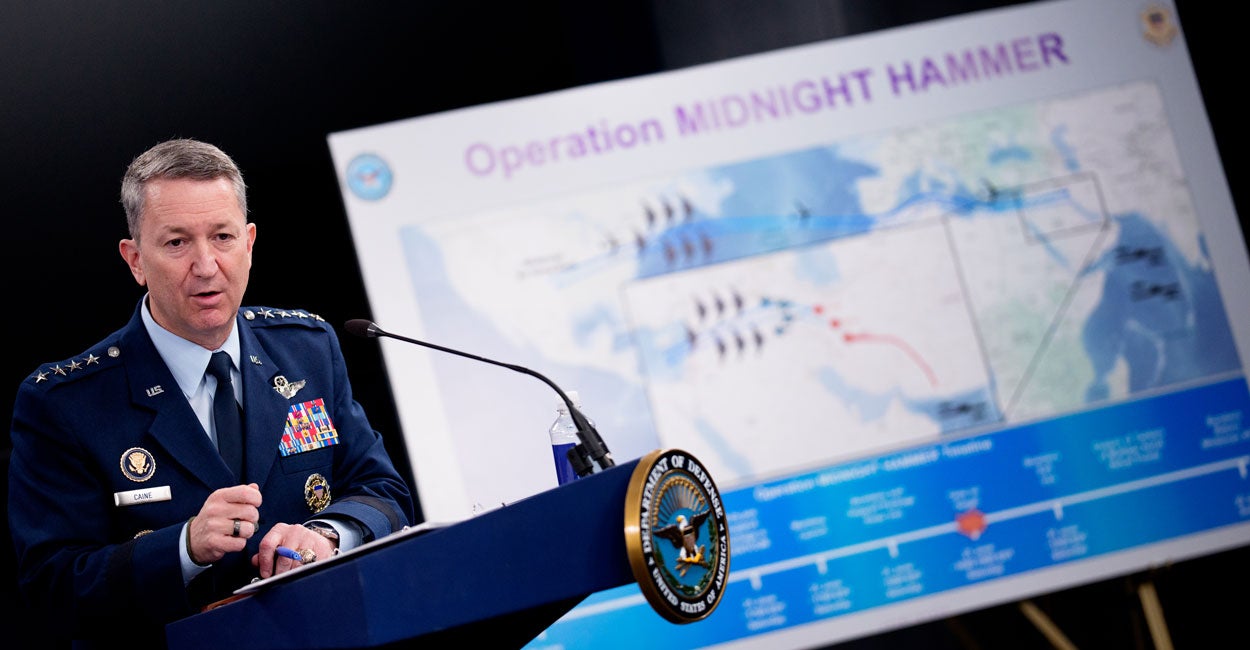
The recent Israeli and American strikes on Iranian nuclear facilities have been “extremely successful” in significantly delaying Iran’s nuclear program, according to Robert Greenway, a former senior intelligence officer at the Defense Intelligence Agency’s U.S. Central Command.
Greenway, who also served as a senior director for the National Security Council and principal architect of the Abraham Accords during President Donald Trump’s first term, questioned leaked intelligence assessments suggesting limited damage.
Speaking to Fox Business host Maria Bartiromo today, Greenway said the Israeli and U.S. operations damaged Iran’s most protected facilities and left the country with no meaningful air defenses.
“The United States and Israel enjoy complete freedom of action in the air over Iran,” Greenway said on “Mornings with Maria,” emphasizing that Iran “has no air defenses to speak of and no air force.”
Greenway expressed optimism that the weakened Iranian position creates favorable conditions for expanding the Abraham Accords, potentially including Saudi Arabia, and represents a fundamental shift in regional power dynamics.
He also suggested the strikes send important signals to other U.S. adversaries like Russia and China, particularly through renewed American influence over global energy markets.
A lightly edited transcript of his interview is below.
Maria Bartiromo: Former senior director for the National Security Council, he is principal architect of the Abraham Accords, Robert Greenway is back with us. I want to get your reaction on this whole conversation and this apparent intelligence leak and this new conversation of, well, was it as successful as the president is saying, is it less successful? What’s your take?
Robert Greenway: First, without having seen the report, it’s an initial assessment on a worst-case scenario. And the result was low confidence. So it has to be taken in context.
Second, it didn’t evaluate the impact across the entire system. This was a decades-long project, a $2 trillion investment that Iran made in a very, very delicate process in order to enrich uranium.
I think that the director general of the IAEA, the Israeli and US intelligence community will confirm the results that Iran’s program has been radically altered, it has been delayed significantly, and that the military operations that Israel and the United States took were on the whole extremely successful.
Bartiromo: And that’s what I thought. By the way, President Trump made the point of saying if we see any more aggression and efforts to continue building a bomb in Iran, that the U.S .would go back in and finish the job.
Greenway: That’s right. The two most important things to note here are: One, that the United States and Israel enjoy complete freedom of action in the air over Iran. It has no air defenses to speak of and no air force. It cannot prevent further action. And second, the most protected and defended facilities in the Iranian inventory are completely inoperable. So there’s no place to hide.
In fact, all of the places now inside of Iran that may hide or conceal the remaining enriched uranium are within Israel’s capability to strike. And so regardless of the current circumstances, we have complete freedom of action should we be required to go and strike again?
Bartiromo: Having said that, President Trump is trying to have a measured tone when talking to the Israelis as well as the Iranians. I mean he told apparently Israeli Prime Minister Benjamin Netanyahu not to expect any more American strikes inside of Iran and that he should stop sending his missiles into the country and that both sides should actually keep the ceasefire in place. Do you believe the ceasefire will stay in place?
Greenway: I think it is holding, and I think it will hold. It’s not surprising that it took a little bit of time. This is like a massive train to bring it to a complete halt—it takes a couple hundred feet. But I do think it’s going to hold because Iran has to survive, and that’s its calculation.
Israel achieved its war aims, and I think it’s also been at war now for over two years, since Oct. 7, 2023, and so I think a break was required. Again, should additional strikes be required, the latitude, the flexibility exists to be able to do that.
Bartiromo: Robert, what’s your take in terms of where this heads over the long term? I mean, obviously, I’d love to get your take on the Abraham Accords and how that will evolve. I know we were very close to seeing the Saudis perhaps join the Abraham Accords. You don’t see a lot of support for Iran in the Middle East, that’s for sure. So what are you expecting the long-term implications of this strike on these nuclear facilities to be?
Greenway: This is the first time in decades I’ve been optimistic about the trajectory in the Middle East. And it’s because President Trump has been able to reverse the trajectory.
Iran was tapping along the United States in diplomats for decades. Now they’ve tapped out. And I think at this point now, the barriers to entry for expanding the Abraham Accords is incredibly low.
It will not surprise me if President Trump expands the accords within his second term and I think we’ll see a new Middle East.
Iran was isolated and Israel stood with partners and allies in the region against this threat, which is now radically reduced. And so I think it is absolutely probable that the accords will finally be expanded and President Trump will build on the foundations historically that he did in the first Trump administration.
Bartiromo: The team around Reza Pahlavi, the former exiled crown prince of Iran, told me yesterday that he doesn’t want the job to go running Iran. That he wants to be a transitional leader. What would you expect for the future of Iran? And I know that it’s not in the US’ goal post to actually have regime change. President Trump has said that many times, but as we see this situation evolving, do you think that we could see a return to Iran’s, might I say, greatness? I mean 47, 50 years ago.
Greenway: I do think that it’s more likely today than it was six months or even a year ago. The regime’s grip on the people of Iran, it’s brutal, repressive; infrastructure has been damaged by Israeli strikes. Its legitimacy wasn’t strong to begin with. It’s now rapidly eroding. And again, it stands isolated.
I do think, though, that it retains the capability to repress its population, but increasingly that sentiment among a large growth in the youth population within Iran aspires to a better day. But the opposition groups are not as yet organized. They have tremendous opposition in the state’s repressive capacity.
Over time, though, there’s no question that ultimately Iran’s going to return to better days. It’s important to remember they were the first to obtain a constitution in 1906 in the region, and it’s likely to return. They perhaps have a greater path to a democratic future than any other country in the region. So I do think in time it’s likely to occur.
Bartiromo: That is just fascinating. So many young people have no idea about what was the situation there. And to even consider that notion is fairly exciting.
Now President Trump is set to meet with Ukrainian President Zelensky later today at the NATO summit. He detailed a call that he got from Vladimir Putin, President Trump did. So, Robert, at the end of the day, the question is what about our adversaries? What about Russia? What about China and the implications of this strike on the nuclear sites. Do you think that pressures Russia to ease up on the fighting on Ukraine? Does it pressure China to ease up on the consistent undermining of America?
Greenway: There’s no doubt about it. I think between the president’s visit, realignment in the Middle East, and the recent strikes against Iran send the most important signal.
The lever here being pulled by the president is control over the global energy markets. Russia is a competitor with the Middle East that used to control with OPEC—and managed to a great extent under the Biden administration—energy prices, its principle source of revenue.
At the same time, Beijing was a huge customer of the Middle East. Half of its oil was coming from the Middle East, 90% of Iran’s exports, and now the Middle East is under new management.
Essentially, the constellation of U.S.-led partners and allies rather than Tehran. And that sends important signals. And then there’s the use of force.
President Trump has reasserted again that he’s willing to apply all instruments in national power to pursue U.S. interests. And I think that sends an important signal. And his ability to get NATO to spend more in its collective defense should not be underappreciated. It’s a tremendous achievement.
Bartiromo: Alright, we will leave it there. Robert, great to see you this morning. Thanks very much, sir.
The post Israeli-US Strikes on Iran Create ‘New Middle East,’ Former Defense Intelligence Officer Says appeared first on The Daily Signal.
Originally Published at Daily Wire, Daily Signal, or The Blaze
What's Your Reaction?
 Like
0
Like
0
 Dislike
0
Dislike
0
 Love
0
Love
0
 Funny
0
Funny
0
 Angry
0
Angry
0
 Sad
0
Sad
0
 Wow
0
Wow
0
